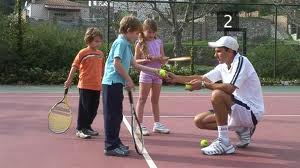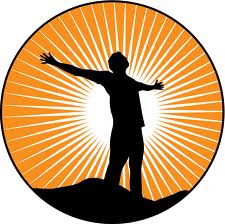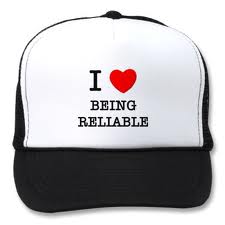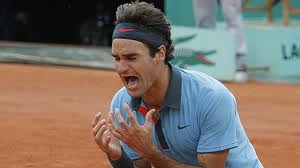Empowerment to the people!
Whether you learn from a coach or not, you'll only become a true master of your destiny when empowerment has been put in your domain. You are controlling what is going on.
Learning anything should not be just about the coach or teacher just giving you endless instructions and exercises. You aren't in a class where the teacher gives you photocopies and all you have to do on the exam is spew out everything that the teacher has given you. The coach gives you basic information and you must recognise the relative importance of that information. You decide how much you want to master those instructions or not. You'd think that ideally, from the best coaches, that all you have to do is do exactly what they say. This is true to a point.
Obviously you must respect the authority of the coach? He knows, far better than you, what you are supposed to be doing. If you don't believe this, then almost certainly the basis for the coach/player relationship is not strong. It must be assumed that the coach will bring you something significant, otherwise you're wasting your time. Or it could be that your attitude towards coaching is that you already know yourself and your game well enough, and the coach's job is only to keep a certain structure in your training. You don't actually listen to any advice he may give you. There's nothing wrong with using a coach like this, but there is already an acceptance inherent in this that the player still needs the coach, and his knowledge of how to structure training sessions.

The right coach
So whichever category you belong to, trusting a coach implicitly for all instructions, or using a coach as an exercise giver, you still accept that you need him. Ideally a coach should supply both of these roles, but the player rarely seeks or uses these two roles equally. A crucial day will arrive in both cases. The day of empowerment. This is the day when, even if you rely on a coach for all of your moves, you, as a player, recognise that the coach is giving you information at the right time, in the right way, to give you personal power in a performance situation.
Let's take a couple of examples.
You're a beginner, worse, someone who has hardly participated in any ball games in his life. The coach takes you through the steps of how to find your contact points, how to shape your racket. This isn't such clever information, but the fact that a coach can do this is giving the power of his knowledge efficiently to the player. The beginner finds his contacts in a short time, and starts shaping his racket around the ball, controlling everything that is going on. The coach has given power to the player, power to deal with that ball, that situation, with the utmost control. The player becomes confident. He respects the coach for giving this power. An intelligent player knows that further power transferrals are coming from the coach, so he keeps coming for more.

Beginning is the hard part
What about the seasoned match player? I'll take one of my squad players who was only on the squad for a few weeks. In fact he had a far longer relationship with coaches that he had with his academy back in England. Initially he came to workouttennis.com because he didn't get enough tournament tennis in his programme from the academy. The workouttennis.com coaches were working with a player who already knew a lot about himself, the things that he should be doing on the tennis court. He had been well coached, and he was an easy player to coach. He trained hard and was always competitive in match situations with colleagues and unknown adversaries. How can any further power be transferred to such an experienced squad and match player?
When a teacher receives a good pupil he jumps for joy. A good pupil is used to using teachers, used to taking information from them, and profiting from it. What happens if he is near to the peak of his receptive, or power-acceptance, capabilities? The coach may say, I can't help you any more. You're on your own.
If a coach says he cannot help the player any more, which he may honestly do, he is effectively getting ready to get fired. However, a player can challenge the coach. He may say, you can't teach me much more than I already know, but I need your support and preparation to get through my next tournament. The coach is back in work again. He doesn't have to deliver any extravagant instructions, he just needs to be there. Once again power is being transferred. The player has accepted that he values the moral and physical support of a coach, an authority figure that he respects. The teamwork will continue.

Teamwork continues
How can the coach transfer any power in this situation? His "knowledge" is no longer an essential ingredient. This relationship has reached a different phase. Where the beginner needed technical advice and practical exercises to become empowered, the tournament player needs a refined, delicate, structure. If the player were on his own, managing his own training, trainings partners, his schedule, his tennis communication and feedback, and goals, he is overloading himself. He needs to give these "little" jobs to someone trusted. The player needs a companion, a personal assistant, a guru, to continue a journey that will take him who knows where.
That's why a player like Federer needs a coach. They don't talk technique much. Neither strategy, nor programming either. Why? Because they both know, after years of experience that essentially what they are doing works. Continue along this route. The coach does still have an essential role to play, and that is to "communicate" with his experienced tournament player. He needs to prepare his mind, give him smaller challenges more by subtle changes in tone and dialogue, than by any direct hard and fast rules.

Communication skills
The final illustration is to simply establish why we need empowerment in tennis players. When a tennis player is in a high pressure situation, he needs to master his thoughts and emotions. This, like a lot of things, isn't easy, and certainly varies from person to person. The goal is empowerment, because we want any player, beginner, or touring professional, to be at the maximum of his powers for his experience and skills level for any day. By feeling that power, the player develops the mental strength to confront any situation, even unknown ones. In this empowered tennis environment there are few rules and controls. There is an acceptance of the conditions, and optimalisation of preparation and execution to deal with the conditions. The player is empowered.
Have A Great Story About This Topic?
Do you have a great story about this? Share it!
Tour Coach -
on this site!
